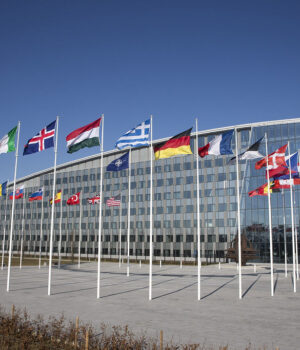by Edgard Lacayo
It has been a little over a month since Russia has invaded Ukraine. They have made some gains, but have not achieved any of their major objectives. Most of Ukraine is not under Russian occupation and what little areas are occupied are still resisting. Ukrainian resistance has proven to be tougher than they ever expected. Meanwhile, on the diplomatic side of things, Russia and Ukraine are still engaged in talks and are set to meet for more negotiations in Turkey later this week. Russia has been condemned by countries and organizations around the globe.
One organization that seems to not know what to do is NATO. Its members can agree to condemn Russia but cannot agree on how to proceed. The defense organization is split between two sides, diplomacy and military aid. Western European countries like France, Germany and Italy are heavily against sending military aid to Ukraine. Germany and France want to go through the diplomatic route and engage Russia at the negotiating table. Their main objectives are to establish a corridor for humanitarian aid, negotiate a ceasefire and eventually withdraw troops from Ukraine.
The UK and eastern European countries, like Poland and the Baltic states, are highly skeptical of this approach. They believe that Russia is not to be trusted diplomatically and point to Putin’s actions and clear lies about previous Russian actions.
Within NATO, the most heated debate is on sending military aid. France’s president, Emmanuel Macron, has expressed his opposition to sending tanks and jets to Ukraine. Along with Germany, he claims that sending military aid is an obstacle for peace. It escalates the conflict, gives Russian forces more things to shoot at and it might even encourage Putin to create further destruction. Another less-reported debate within NATO is about sanctions on the Russian energy industry. Most of Europe is dependent on imported Russian gas and oil. If sanctions come down on the energy sector, this will affect all of Europe. Since there is already a huge dependence, alternative energy sources might not be able to keep up with the demand across the member countries.
The only eastern European country that seems to be an outlier in NATO is Hungary. Their prime minister, Viktor Orban, is heavily pro-Russia and has become a pariah within NATO and eastern Europe. He has refused to denounce Russia’s actions and has become an apologist for Putin.
Meanwhile in Ukraine, President Zelensky continues to call for aid from NATO. Despite this, within the negotiations, Ukraine has said that they are willing to become a neutral nation as a condition to stop the war.




